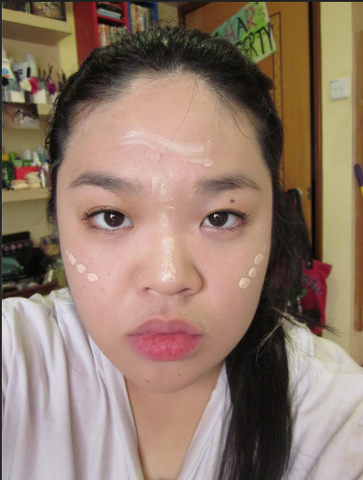Most sunscreens do not protect against blue light, however there are some that do, here we detail what they are and also why it is not so convenient for you to use them:
- Sunscreens that have iron oxide or zinc oxide as part of their ingredients DO protect from blue light, however, they do not have a light texture, they give a white cast, which is known as "white cast" or ghost face "the ghost face".
- Tinted sunscreens DO protect against blue light, the downside with this is that they are usually available in one, two, or three shades as opposed to a foundation that is typically offered in up to 20+ shades for different skin tones that each type of woman has. If you wear a tinted sunscreen to protect yourself from blue light, your foundation probably won't work for you.
So, should I use a moisturizer that protects me from blue light or a sunscreen?
The answer is both, especially during the day since each one fulfills a different purpose:
3. The moisturizing cream should be for daily use and is an essential product for every woman. Moisturizing creams that protect against blue light do not only protect from its harmful effects, but also repair the damage caused by it such as inflammation and prevent collagen loss.
4. The sunblock or sunscreen should be used after the moisturizer, and it should be ultra-light and preferably transparent so that it does not leave your face white. If you put on makeup or use foundations, you shouldn't use a tinted sunscreen because it will change the tone of your foundation and if you use it as a base, it's hard to find one that matches your skin tone exactly.
Also remember to buy a moisturizer according to your skin type, dry, normal or combination.



